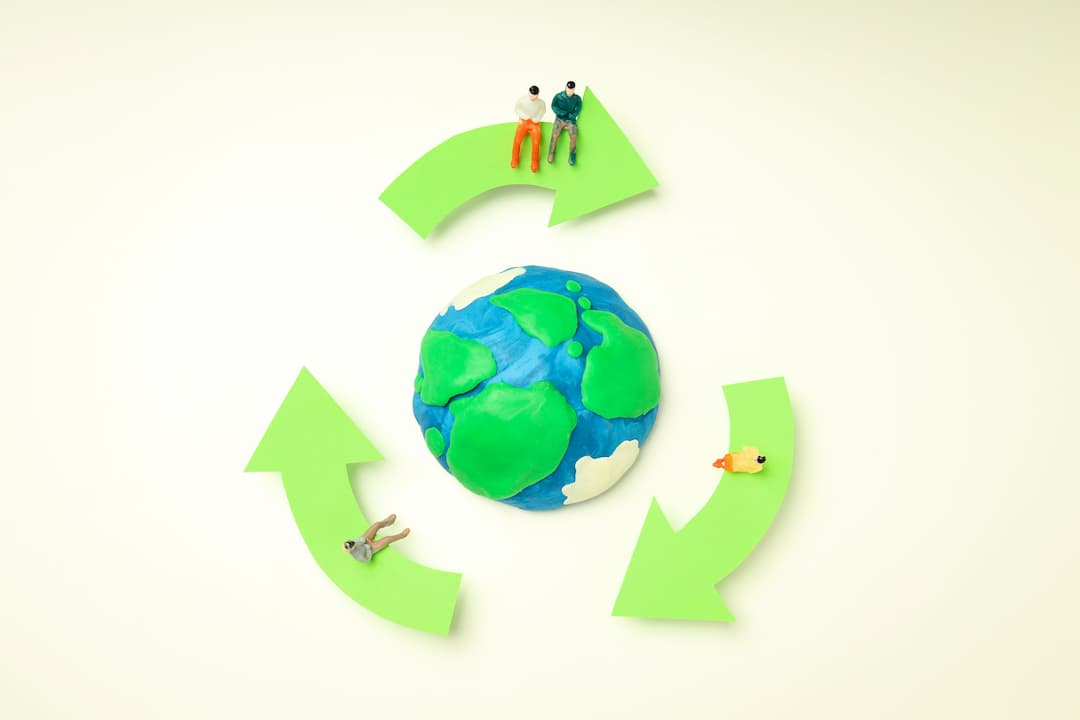 Plastic Pollution and Recycling
Plastic Pollution and Recycling
Minutes to read: 5 minutes
 Photo by a_medvedkov of Envato Elements
Photo by a_medvedkov of Envato Elements
In the heart of Southeast Asia, the Philippines is facing significant environmental challenges due to the rampant use and exploitation of its natural resources. This pressing situation has united the nation in the fight against ecological degradation1.
Amidst these challenges, a remarkable shift has occurred. Major strides in the legislative sector have redefined sustainability, elevating it from a mere buzzword to a guiding principle of development. This transformative journey has seen several cities emerge as pioneers in sustainable development, setting an inspiring example for others to emulate. Let’s get to know these trailblazing cities, leading the charge toward a more sustainable and resilient future.
Top 5 sustainable cities in the Philippines
Makati City
One of the leading sustainable cities in Metro Manila is Makati City, which strictly enforces waste regulations, prohibiting littering and penalizing offenders based on the number of offenses2. Notably, the Makati Green Building Code mandates eco-friendly designs for new buildings3, resulting in 30% lower energy consumption compared to conventional structures4. The city also excels in waste management, with recycling centers in all barangays fostering a sense of responsibility among residents, leading to higher recycling rates and reduced waste production5.
Taguig City
Next in Metro Manila is Bonifacio Global City (BGC) in Taguig City – a community that serves as a model for sustainable urban planning13. Sustainable initiatives, including organic waste management, have significantly improved the city’s air quality, addressing historical concerns about poor air quality in Taguig and neighbouring areas14. The city’s organic waste management program has also effectively reduced the burden on landfills by addressing 50% of total waste15.
Quezon City
The third leading city in Metro Manila is Quezon City. Known as the City of Firsts, Quezon City demonstrates an unwavering commitment to sustainability. It collaborates with barangays for waste collection, recycling, and disposal, providing metal containers for plastic packaging collection16. The city is a prominent advocate for renewable energy, promoting the Solar Rooftop program that has led to an 80% increase in solar panel installations over the last two years, resulting in significant energy savings for residents and businesses17.
Cebu City
Moving to Central Visayas, we have Cebu City. The local city government spearheaded the Solar Power Program that aimed to install solar panels across public buildings, streets, and major thoroughfares of the city6. This initiative has drastically reduced the city’s carbon footprint, achieving a 25% decrease in carbon emissions since the implementation of the program7. Additionally, the city has enhanced its sustainable transportation system by adding several bike lanes and introducing electric jeepneys and vehicles8, reducing the consumption of fossil fuels9.
Davao City
In Mindanao, the southern part of the Philippines, Davao City is taking the lead in restoring the region’s lush surroundings through its Million Trees program10. To date, the city has planted 300,000 trees in various areas of the city, contributing to carbon sequestration and preservation of biodiversity11. The local government has also implemented a robust solid waste management program and has encouraged composting and recycling in many households, significantly reducing the use of landfills and adverse impacts on the environment12.
Honourable mention: Naga City

Aside from the five cities above, Naga City is an emerging sustainable city for solid waste management and recycling. Located in the southeastern part of Luzon, the city has been collaborating with Plastic Bank since 2021 to help empower its constituents through recycling. The Naga City-wide Plastic Bank ecosystem educates and encourages people from marginal and low-income communities to collect discarded plastic and exchange it at collection branches for an above-market rate. This empowers collection members with a secure income, helping them carve their own path out of poverty. In addition, they gain access to social benefits such as accident insurance.
Revealing value in discarded plastic
Independent plastic collectors and junkshops in the informal recycling industry are also given the opportunity to join the social enterprise’s model and become registered Plastic Bank members. In 2023, the Plastic Bank collection community in Naga gathered 7,490 kilograms of plastic from the environment. That’s the equivalent of 374,500 500ml plastic bottles exchanged as currency.
Together with Plastic Bank, Naga City is empowering communities while inspiring eco-conscious behaviours among locals. Simultaneously, the local government is implementing legislative reforms and increasing compliance with Republic Act 9003, the Ecological Solid Waste Management Act, and RA 11898, or Extended Product Responsibility.
Moving forward
In recent years, the Philippines has witnessed remarkable progress in sustainability, exemplified by the transformative initiatives undertaken by cities such as Makati, Cebu, Davao, Taguig, Quezon, and Naga. The commendable success achieved by these urban centers not only showcases their commitment to sustainability but also serves as an inspirational model for businesses and communities nationwide.
The journey of these cities presents an opportunity for businesses to embrace a proactive role in urban planning. By incorporating and adapting the successful strategies implemented in these municipalities, businesses can contribute to fostering economic prosperity while making substantial strides towards environmental resilience. The experiences of Makati, Cebu, Davao, Taguig, Quezon, and Naga can serve as invaluable benchmarks and blueprints, inspiring a broader movement toward a more regenerative and resilient future.
As we applaud the accomplishments of these cities, let us collectively encourage businesses, and municipalities to adopt sustainable practices in their strategies and day-to-day operations. By doing so, they not only contribute to the well-being of their local communities but also become integral players in the larger effort to build a more sustainable and resilient nation.





